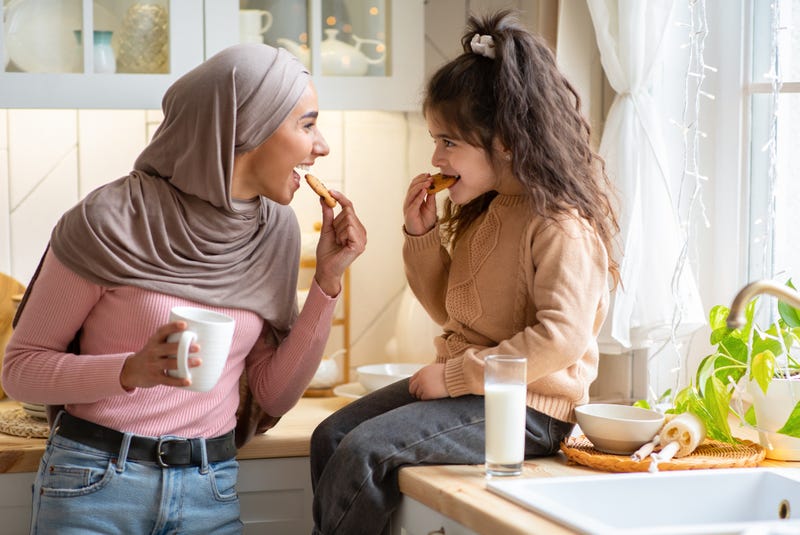
(WWJ) -- As families prepare to gather around the table for Thanksgiving dinner, four in five parents of children between the ages of 4 and 10 don’t think their children are as thankful as they should be.
“Around 42% of parents said sometimes they’re embarrassed at how selfish their child acts," said Sarah Clark, M.P.H, co-director of the C.S. Mott Children’s Hospital National Poll on Children’s Health at the University of Michigan.
The national poll states that more than half of parents worry they overindulge their children.
But most parents do in fact want to raise appreciative kids, with three in four saying it’s a high priority to teach their children gratitude, according to the C.S. Mott Children’s Hospital National Poll on Children’s Health at University of Michigan Health.
“We know that gratitude is associated with more positive emotions, having strong relationships, enjoying more experiences and even health benefits,” Clark said. “However, gratitude is not something that children usually acquire automatically; it needs to be nurtured, in an age-appropriate way.”
The poll included the different strategies parents use to teach their children to be more grateful -- including practicing appreciation, talking about gratitude, contributing to family chores, volunteering and giving.
Among the most common ways parents said they teach their children to practice appreciation is by reminding them to mind their manners, with some 88% of parents regularly having their child say please and thank you, the poll states.
But Clarke said children shouldn’t just be citing these words on auto pilot without understanding their meaning.
“There’s a difference between politeness and gratitude,” Clark said. “To help children learn to be grateful, parents also need to emphasize why they’re asking their child to say thanks.”
According to the poll, in order to get their children to become more grateful, nearly two-thirds of parents said their families have daily conversations about what they’re grateful for.
“Parents can model gratitude for their kids by describing what they’re thankful for out loud every day,” Clark said. “This could be sharing something positive they appreciated during their day or general gratitude about health, family and what they have.”
Another tactic polled parents use to teach their children gratitude is by having them do chores to help the family -- three in five parents said they do this regularly.
“This can help children to appreciate their role in the ‘greater good’ and nurtures their sense of gratitude,” Clark said.
Getting their children into volunteering or any other service activity is used by nearly two-thirds of parent, stated the poll.
“It’s a natural step to go from helping with household chores to volunteering with neighbors or at a school or community event,” Clark said. “To help nurture children’s sense of gratitude, parents may want to give an age-appropriate explanation of the reason for the activity and how it will be helpful to others.”

Lastly, according to the national poll, a less common strategy to teach gratitude is having a child donate toys or clothes to charity, with only 37% of parents saying they do this regularly and just 13% of parents said their child regularly donates their own money to charity.
“Parents should empower them to make these decisions themselves and gently help them see how their generosity could bring happiness to another child,” said Clark.


